Are you working tirelessly to lose weight but not seeing the results you want? You are not alone in this. Despite tremendous efforts, many people fail to shed those stubborn pounds because they commit the common diet mistakes. The role of diet in weight loss cannot be underestimated and being aware of these mistakes is crucial to achieving your goals.
Imagine diligently following a strict diet plan, but the numbers on the scale won’t budge. Frustration sets in and you wonder if your efforts were in vain. This is a common pain point that countless people face on their weight loss journey.
In this article, we uncover seven mistakes that could be hindering your weight loss progress. From secretly hiding calories in drinks and snacks to overlooking the importance of balanced macronutrients, we’ll explore these challenges. By identifying these mistakes and applying practical solutions, you can finally overcome the obstacles and experience the weight loss success you seek. Let us uncover the secrets to more effective and sustainable weight loss so you can confidently say goodbye to the question “Why am I not losing weight?”
Mistake 1# – Overlooking Hidden Calories in Drinks and Snacks

One of the most common mistakes that can hinder your weight loss progress is overlooking the impact of hidden calories in drinks and snacks. These sneaky sources of calories can add up quickly and sabotage your efforts, even if you’re following a healthy meal plan.
The Impact of Liquid Calories
Beverages like sugary sodas, fruit juices and flavoured coffee drinks can be loaded with calories. Drinking these beverages mindlessly throughout the day can lead to a significant calorie intake without even realising it. These liquid calories do not provide the same level of satiety as solid foods, making it easier to consume more than needed.
Also Check – Weight Loss Secret: Say No to Outside Food, Cook at Home!
Mindless Snacking
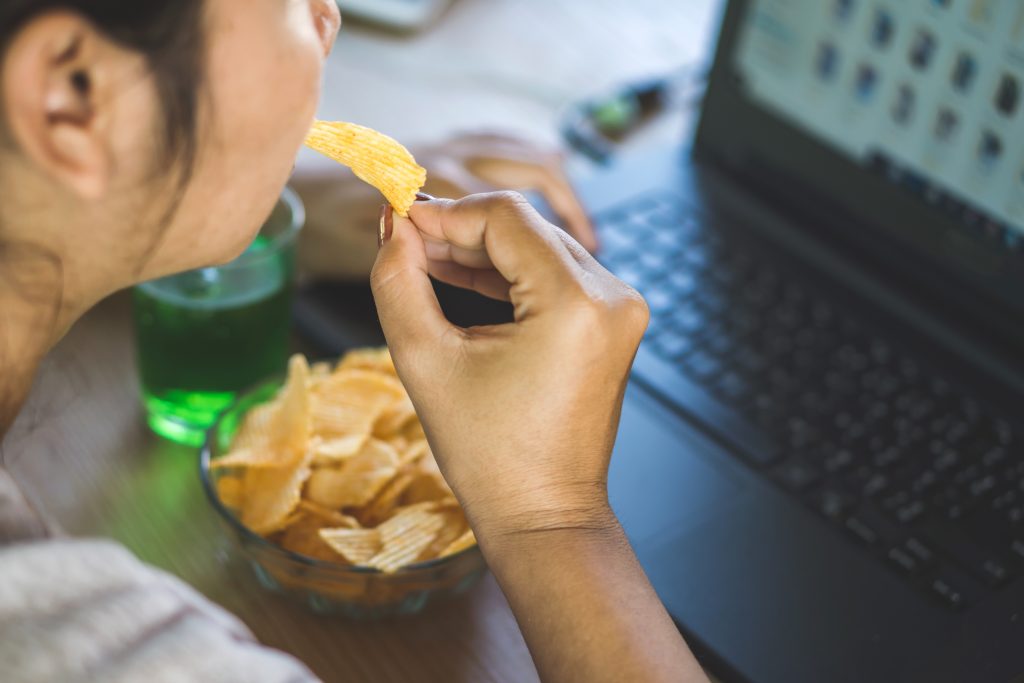
Snacking can also be a culprit when it comes to hidden calories. Eating small bites here and there, like grabbing a cookie from the office jar or munching on chips while watching TV, can lead to a surplus of calories without paying much attention to the portions.
Practical Tips to Monitor and Reduce Calorie Intake
- Read Labels- Pay close attention to nutrition labels on drinks and snacks. Look for hidden sugars and high-calorie content.
- Choose Water- Opt for water as your primary beverage. It’s calorie-free and helps keep you hydrated.
- Mindful Snacking- Be conscious of your snacking habits. Plan healthy snacks, like fruits or nuts and portion them out to avoid overeating.
- Limit Liquid Calories- Reduce or eliminate sugary drinks from your diet. Instead, opt for unsweetened beverages or herbal teas.
- Track Your Intake- Keep a food journal or use a mobile app to track your daily calorie intake. It helps you stay aware of your consumption.
Also Check – Hidden calories: How to spot and avoid them
Mistake 2# Frequently Eating Outside- The Culprit of Weight Gain

Frequent dining out can sabotage your weight loss efforts. Restaurant meals often contain hidden fats, sugars, and excessive portions, making it challenging to manage your calorie intake. It’s best to prioritise home-cooked meals for better control over ingredients and portion sizes.
Why Avoid Eating Outside?
- Caloric Trap- Restaurant dishes can be calorie-dense, leading to unintended overeating.
- Lack of Nutrient Control- Homemade meals allow you to choose nutrient-rich ingredients.
- Added Sugars and Fats- Many restaurant dishes are loaded with unhealthy additives.
Tips for Dining Out Mindfully
If eating out is unavoidable, follow these tips-
- Research Menus- Look for healthier options on the menu before heading out.
- Portion Awareness- Consider sharing a dish or requesting a smaller portion.
- Control Your Sides- Opt for salads or vegetables instead of calorie-laden sides.
- Skip Sugary Drinks- Choose water or unsweetened beverages to avoid extra calories.
- Mindful Eating- Eat slowly and savour each bite to prevent overindulging.
The Home-Cooked Advantage
Preparing meals at home empowers you to craft healthier choices. Plan your meals, use fresh ingredients, and experiment with nutritious recipes. You’ll have greater control over what you consume, leading to improved weight management and a healthier lifestyle.
Also Check – 7 Ways to Mindful Cooking- Nourishing the Soul
Mistake 3# Not Balancing Macros Properly
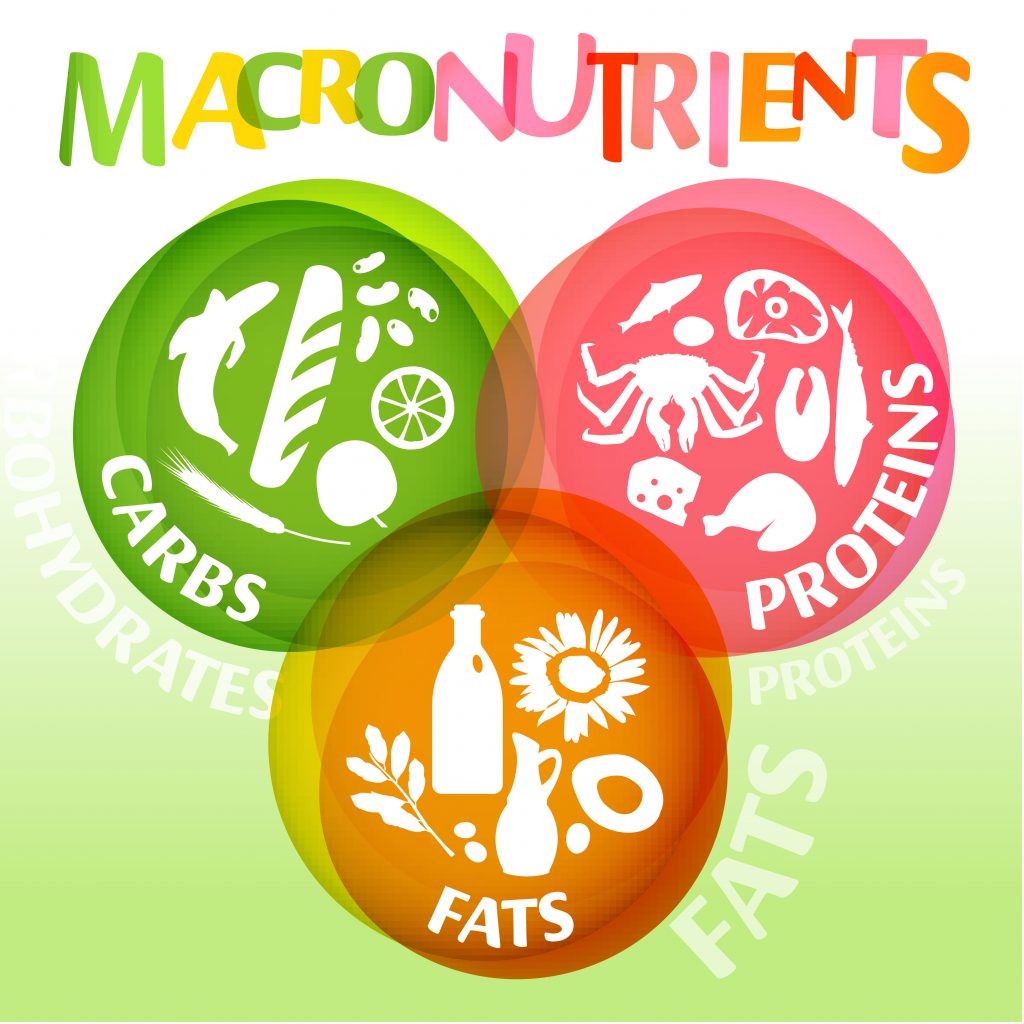
Understanding macronutrients and how to balance them is crucial for effective weight management. Let’s delve into the significance of macronutrients and the role they play in optimising weight loss.
What are Macronutrients
Macronutrients, often referred to as “Macros,” are the three essential nutrients our bodies need in larger quantities- carbohydrates, proteins and fats. Each macronutrient serves a unique purpose in our diet and impacts our weight and overall health.
The Role of Macronutrients in Managing Weight Effectively
- Carbohydrates- Carbs are the body’s primary source of energy. Consuming the right amount of carbohydrates is vital to fuel daily activities and workouts. However, overeating carbohydrates, especially refined sugars and processed carbs, can lead to weight gain.
- Proteins- Proteins are the building blocks of our bodies, essential for repairing tissues and building muscle. Consuming an adequate amount of protein can help you feel fuller for longer, reducing the likelihood of overeating.
- Fats- Dietary fats play a crucial role in hormone production and nutrient absorption. Healthy fats, like those found in avocados and nuts, support overall health and weight loss. However, excessive consumption of unhealthy fats can contribute to weight gain.
Also Check – How often Should you Weigh Yourself? – Find Your Balance and Understand Your Body
The Importance of Balanced Macronutrient Ratios for Weight Loss
Finding the right balance of macronutrients is key to optimising weight loss. A balanced diet helps regulate blood sugar levels, control cravings and support energy levels throughout the day.
Guidance on Adjusting Macro Ratios for Individual Dietary Goals
Everyone’s dietary needs are unique and the ideal macronutrient ratio can vary based on factors like activity level, age and body composition. For example-
- Low-Carb Approach- Some individuals may benefit from a lower carbohydrate intake, such as those following a ketogenic diet. This approach can help promote ketosis, where the body burns fat for fuel.
- Moderate Approach- Others may find success with a balanced mix of carbohydrates, proteins and fats. This approach supports sustained energy levels and a well-rounded diet.
- High-Carb Approach- Endurance athletes or those with high energy demands may require a higher carbohydrate intake to support their training and performance.
Consulting with a registered dietitian or nutritionist can provide personalised guidance on adjusting your macro ratios to align with your specific weight loss goals and lifestyle.
Mistake 4# Skipping Meals: The Counterproductive Mistake
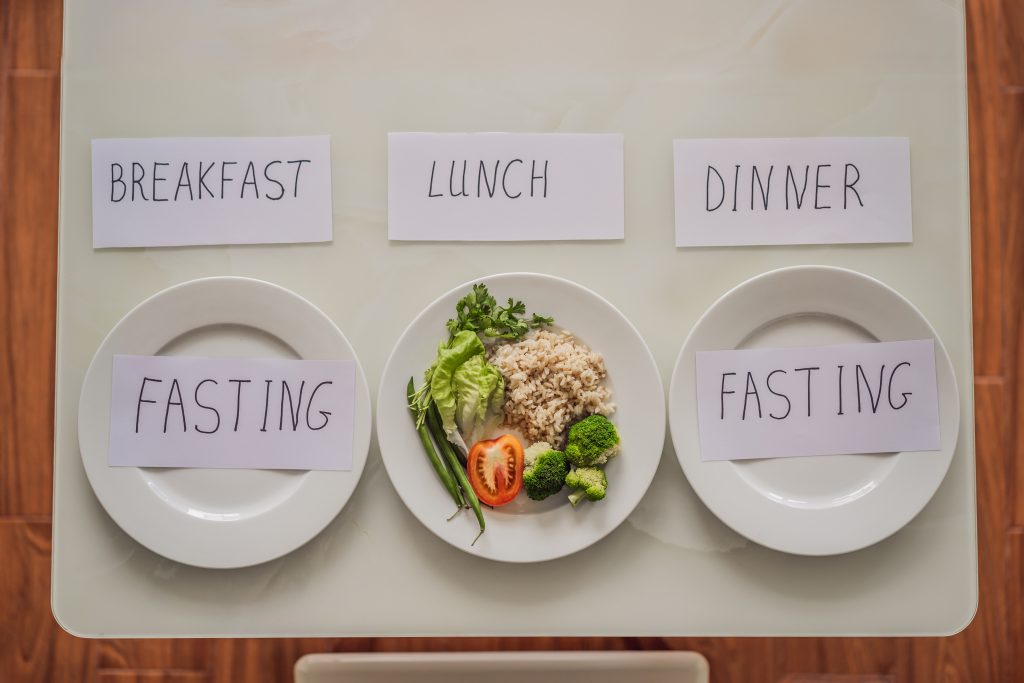
You may have heard that skipping meals can fast-track your weight loss goals, but this is a common misconception. Let’s debunk this myth and explore how skipping meals can actually hinder your progress.
Debunking the Misconception
Skipping meals may seem like an easy way to cut calories, but it can have counterproductive effects on your body. When you skip a meal, your body enters a state of deprivation and as a survival mechanism, it slows down your metabolism. This means your body burns fewer calories, making weight loss more challenging in the long run.
Effects on Metabolism and Hunger Regulation
When you skip meals, your blood sugar levels drop, leading to increased hunger and cravings. You’re more likely to overeat during the next meal or indulge in unhealthy snacks to satisfy your hunger. Additionally, irregular meal patterns can disrupt your body’s internal clock, affecting your hunger and fullness cues.
Recommendation for a Healthier Approach
Instead of skipping meals, focus on creating a balanced and consistent meal routine. Fuel your body with nutritious foods at regular intervals to keep your metabolism active and stabilise blood sugar levels.
Also Check – Skipping Breakfast for Weight Loss – One Size Does Not Fit All
Sample Meal Timing and Frequency
- Breakfast- Start your day with a nourishing breakfast to kickstart your metabolism and provide energy for the day ahead.
- Mid-Morning Snack- A healthy snack, like a piece of fruit or a handful of nuts, can keep hunger at bay and prevent overeating during lunch.
- Lunch- Opt for a well-rounded lunch with lean proteins, vegetables and whole grains to sustain energy throughout the afternoon.
- Afternoon Snack- If you feel hungry between lunch and dinner, have a light snack to keep your metabolism steady.
- Dinner– Enjoy a balanced dinner that includes proteins, vegetables and healthy fats to support your body’s needs.
- Evening Snack (optional)- If you find yourself hungry before bedtime, choose a light snack, such as a yoghurt, Turmeric Milk, Almonds ,.
Also Check – The Truth About Skipping Dinner for Weight Loss – Fact vs. Fiction
Mistake 5# Emotional Eating- The Hindrance to Weight Loss

Emotional eating can be a significant barrier to weight loss. Let’s explore the connection between emotions and overeating and discover effective strategies to overcome this challenge and foster a healthier relationship with food.
The Connection between Emotions and Overeating
Emotional eating is when we turn to food to cope with our feelings, whether it’s stress, sadness, boredom, or even happiness. It’s a way to find comfort and temporary relief from emotions. However, emotional eating often leads to consuming more calories than the body needs, hindering weight loss progress.
Strategies to Overcome Emotional Eating
- Mindful Awareness- Pay attention to your emotions and recognize when you’re eating for reasons other than physical hunger. Pause before reaching for food and ask yourself if you’re truly hungry or seeking emotional comfort.
- Find Healthy Outlets- Discover alternative ways to deal with emotions. Engage in activities like exercise, journaling, meditation, or talking to a friend to express your feelings and find support.
- Keep a Food Journal- Track your food intake and emotions. This helps identify patterns and triggers for emotional eating, empowering you to make positive changes.
- Create a Support System- Reach out to friends, family, or a support group to share your journey and gain encouragement during challenging times.
- Plan Nutritious Meals- Plan balanced meals and snacks ahead of time to prevent impulsive eating driven by emotions.
- Practise Mindful Eating- Savour your food by eating slowly, enjoying the flavours and paying attention to hunger and fullness cues.
- Seek Professional Help- If emotional eating is a significant challenge, consider seeking guidance from a therapist or counsellor who specialises in emotional eating and behavioural changes.
Also Check – 7 Medical Reasons Why You’re Not Losing Weight
Instead of reaching for a tub of ice cream when feeling stressed, try going for a walk or engaging in a calming activity like yoga. Over time, practising these strategies can help you build a healthier relationship with food and break free from emotional eating habits.
Also Check – 10 Eating Disorder Triggers- Tactics to Defeat Overeating Habits
Mistake 6# Mindless Eating: The Pitfall in Weight Loss
Mindful eating is a powerful approach that can positively impact weight loss and transform your relationship with food. Let’s explore the concept of mindful eating and discover practical tips to integrate it into your daily life for lasting results.
The Concept of Mindful Eating
Mindful eating involves paying full attention to the present moment while eating without judgement. It encourages you to be aware of your physical and emotional sensations, your hunger and fullness cues and the taste, texture and smell of your food.
Also Check – 7 Mindless Eating Facts – Adopt the Power of Mindful Nourishment
How Mindful Eating Supports Weight Loss
- Portion Control- Mindful eating helps you recognize true hunger and stop eating when you’re satisfied, preventing overeating and unnecessary calorie consumption.
- Preventing Emotional Eating- By being mindful, you can differentiate between physical hunger and emotional cravings, reducing the likelihood of turning to food for comfort.
- Improved Digestion- Eating mindfully promotes better digestion and nutrient absorption as you chew your food thoroughly and allow your body to process it efficiently.
- Reduced Stress- Mindful eating reduces stress during mealtime, allowing your body to relax and focus on nourishment.
Also Check – 10 Mindful Eating Techniques for Weight Loss and Overall Well-being
Practical Tips to Practise Mindful Eating
Slow Down- Eat at a slower pace, savouring each bite and enjoying the flavours of your food.
Remove Distractions- Avoid eating in front of screens or while multitasking. Focus solely on your meal.
Listen to Hunger Cues- Before eating, ask yourself if you’re truly hungry. Eat when you’re hungry and stop when you’re comfortably full.
Engage Your Senses- Pay attention to the texture, taste and smell of your food.
Take Small Bites- Cut your food into smaller pieces to eat mindfully and feel satisfied with less.
Practise Gratitude- Take a moment before your meal to express gratitude for the nourishment on your plate.
Be Patient- Mindful eating is a skill that takes time to develop. Be patient with yourself and celebrate your progress.
Instead of mindlessly munching on snacks while watching TV, practise mindful eating by sitting at the table and savouring each bite of your favourite snack. By being present in the moment, you’ll likely find greater satisfaction with smaller portions.
Mistake 7# Understanding Portion Sizes and Serving Control
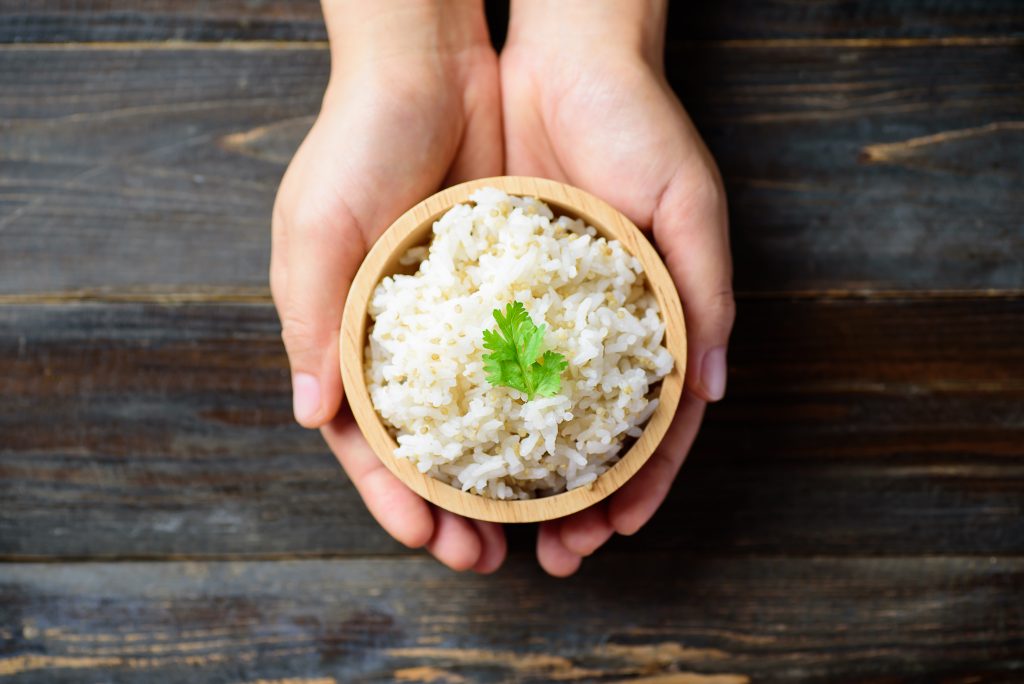
Portion control plays a crucial role in managing calorie intake and supporting your weight loss efforts. Let’s explore the importance of portion sizes and discover practical techniques to gauge portions effectively, helping you avoid overeating and achieve your weight loss goals.
The Importance of Portion Control in Managing Calorie Intake
Portion control is essential because even healthy foods can contribute to weight gain if consumed in excessive amounts. Many of us tend to underestimate the actual serving sizes, leading to unintended calorie surplus.
Practical Techniques to Gauge Portion Sizes
- Use Visual Cues- Visual cues can help you estimate appropriate portion sizes. For instance, a serving of protein (like chicken or fish) should be about the size of your palm, while a serving of cooked grains (like rice or quinoa) should fit in your cupped hand.
- Read Labels- Pay attention to serving sizes mentioned on food labels. Be mindful of how many servings you are actually consuming, especially when it comes to packaged foods.
- Measure with Utensils- Use measuring cups, spoons and kitchen scales to measure portions until you develop a better eye for appropriate servings.
- Divide Large Meals- When eating out or ordering takeout, consider dividing larger meals into smaller portions to avoid overeating.
- Fill Half Your Plate with Veggies- Make vegetables the star of your plate and use them to fill up half of your dish. This leaves less room for larger portions of calorie-dense foods.
- Be Mindful of Liquid Calories- Be cautious of liquid calories from beverages like smoothies, juices and sodas. These can add up quickly without providing a sense of fullness.
A restaurant serving pasta might be much larger than a typical serving you need. To control portions, ask for a to-go box at the beginning of your meal and pack half of it before you start eating. This way, you can enjoy a satisfying meal at the restaurant and have a portion saved for another meal at home.
Mistake 8# Balancing Your Diet with Nutrient-Dense Foods
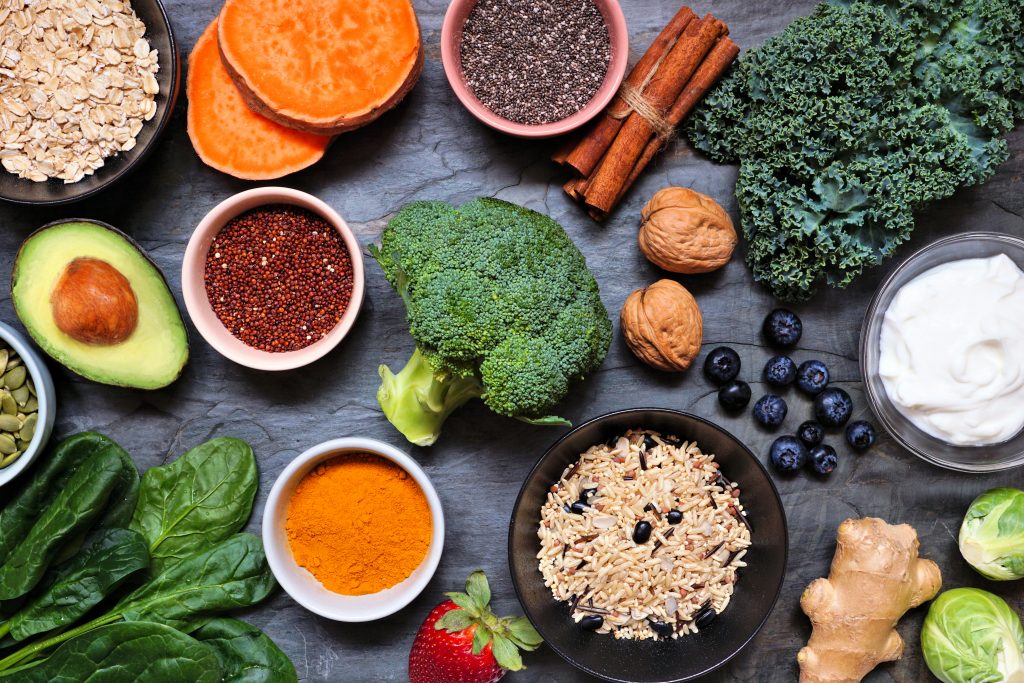
Incorporating nutrient-dense foods into your diet is essential for supporting weight loss and overall well-being. Let’s explore the significance of nutrient-dense foods and provide you with a list of healthy choices to include in your daily meals.
The Significance of Nutrient-Dense Foods in Supporting Weight Loss
Nutrient-dense foods are rich in essential nutrients like vitamins, minerals and antioxidants, providing your body with the nourishment it needs to function optimally. These foods are lower in calories compared to their nutrient content, making them ideal for weight loss.
Healthy Food Choices to Incorporate into Your Daily Diet
- Leafy Greens- Spinach, fenugreek leaves, Moringa, kale and Swiss chard are packed with vitamins and minerals while being low in calories. They can be used in salads, smoothies, or stir-fries.
- Colourful Vegetables- Bell peppers, carrots and broccoli are not only vibrant in colour but also rich in nutrients and fibre.
- Lean Proteins- Opt for lean proteins like chicken, turkey, fish, tofu, or legumes. They keep you full and support muscle maintenance during weight loss.
- Whole Grains- Choose whole grains like quinoa, all types of millets , brown rice, black rice, oats and whole wheat bread, which provide lasting energy and fibre.
- Healthy Fats- Avocado, ghee, nuts, seeds and filtered oil are sources of healthy fats that support heart health and satiety.
- Fruits- Berries, apples and citrus fruits are excellent choices for a natural sweetness and a boost of vitamins.
- Greek Yogurt /Curd – High in protein and probiotics, It makes a satisfying and nutritious snack. Add Nuts and black raisins to make it more nutritious.
A nutrient-dense meal could include a leafy green salad with grilled chicken / Boiled legumes or sprouts , cherry tomatoes, avocado and a light vinaigrette dressing. This meal offers a balanced combination of nutrients and keeps you full without an excessive calorie intake.
Starting a weight loss journey can be challenging, but understanding the role of diet and avoiding common mistakes can make all the difference. Remember, overlooking hidden calories in drinks and snacks, not balancing macros properly and skipping meals can hinder your progress. Emotional eating, portion control, mindful eating and nutrient-dense foods are powerful allies on your path to success. Embrace a balanced and mindful approach to eating, celebrating every step forward. Be patient with yourself and remember that small changes add up to significant results. With determination and a well-balanced diet, you’ll conquer the obstacles and reach your weight loss goals, living a healthier and happier life.

Leave a Reply